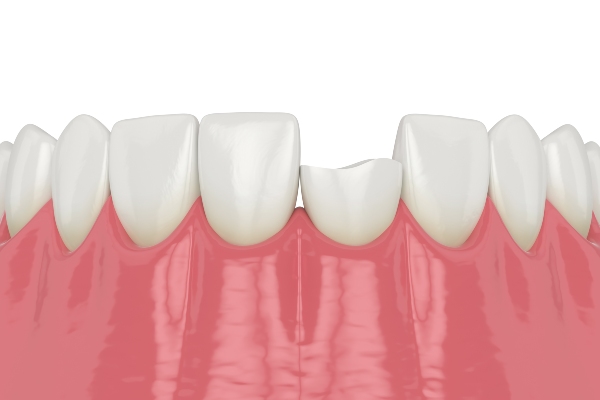What Are Causes of TMD?

Temporomandibular disorders, more commonly called TMD, are ailments that cause pain and dysfunction of the jaw joint and the surrounding nerves and muscles. Some patients live with the discomfort for years while others might experience a sudden onset.
TMD causes explained
The jaw joint, or temporomandibular joint, is actually two pairs of joints that allow the jawbone to open, close and slide. The joints serve as a point of connection between the skull and the rounded ends of the lower jaw. These parts of the bones are covered with protective cartilage and separated by a small, shock-absorbing disc. Any problem that arises in this complex system can lead to pain and discomfort. It can be challenging to determine the exact cause of the pain because it could be a combination of factors. TMD can occur due to the following.
Dental problems
If the top and lower jaws are not aligned properly, this can cause problems with the jaw joint. Missing teeth, improperly fit fillings and worn teeth can all lead to jaw misalignment.
Trauma
Injuries that affect the jaw muscles, bones or joints can cause dysfunction in the jaw and lead to TMD. If the disc between the jawbone and skull becomes dislocated, it can no longer cushion the bones and limits the jaw’s ability to open and close.
Inflammation
Arthritis, infections or tumors in the jaw joint can cause swelling. They can also decrease jaw movement and affect jaw alignment.
Overuse of muscles
The muscles in the jaw can become weak or too tight if you clench or grind your teeth. Excessive gum chewing can cause issues with the jaw muscles as well.
Deformities
Congenital abnormalities that affect the shape of the jaw can create misalignment. Those that affect the size of the jaw can too.
TMD signs and symptoms
TMD is diagnosed based on the symptoms a patient experiences. When being evaluated, the doctor will take your medical history and do a physical exam. During the exam, the doctor will listen to and feel your jaw as you open and close your mouth. Your doctor will also check your bite and may take X-rays of your teeth if necessary. Symptoms that the doctor will be looking for include the following:
- Pain, swelling or tenderness around the jaw joint
- Trouble opening and/or closing your mouth
- Popping or clicking sound when you chew
- Locking or jaw dislocation facial pain
- Uncomfortable and/or uneven bite
- Difficulty chewing, talking and yawning
- Headaches, migraines or pain in the temples
- Popping sounds in ears or ear pain
Treatment options
Treatment of TMD depends on the underlying cause and severity of the symptoms. Treatment may include the use of medications to reduce inflammation and relieve pain. The doctor may also recommend avoiding poor habits such a jaw clenching and gum chewing. Overused, aching facial and jaw muscles can be treated by applying heat and even using massage to help them relax. Dental treatment and bite splints may be used to realign the jaw. If necessary, surgery can be performed to correct jaw abnormalities.
Conclusion
It is important to seek medical attention if you find that you have persistent jaw pain or trouble opening and closing your mouth. Your doctor can identify possible causes and discuss treatment plans with you.
Request an appointment here: https://gkdentaloffice.com or call GK Dental PC at (617) 826-6075 for an appointment in our Everett office.
Check out what others are saying about our dental services on Yelp: TMJ Dentist in Everett, MA.
Recent Posts
TMJ disorder is a serious condition that you should keep an eye on. Your dentist can check for signs and symptoms of this disorder. There are also treatments available to give you the relief you need. However, you do not need to wait to go to the dentist’s office to know that you have problems…
Do you suffer from a TMJ disorder, and are you looking for a TMJ dentist? Individuals can start by seeing their primary general dentist, who has training on the temporomandibular joint and how it affects one's dental health, including the jaw and entire skull.In order to utilize the services of a TMJ dentist, it is…
Temporomandibular joint disorder or TMJ disorder refers to a condition that affects the muscles, ligaments, and joints surrounding the jaw. The TMJ is a ball and socket hinge that uses sliding and hinging motions to function. The joint is at the back of the jaw and includes a bony bump called the articular eminence. The…
TMD, also known as temporomandibular disorder, is a disorder that occurs as a result of problems stemming from the jaw, jaw joint and surrounding facial muscles responsible for chewing and moving the jaw. TMD is also closely associated with TMJ, the temporomandibular joint. This joint is the hinge joint connecting the mandible to the temporal…


